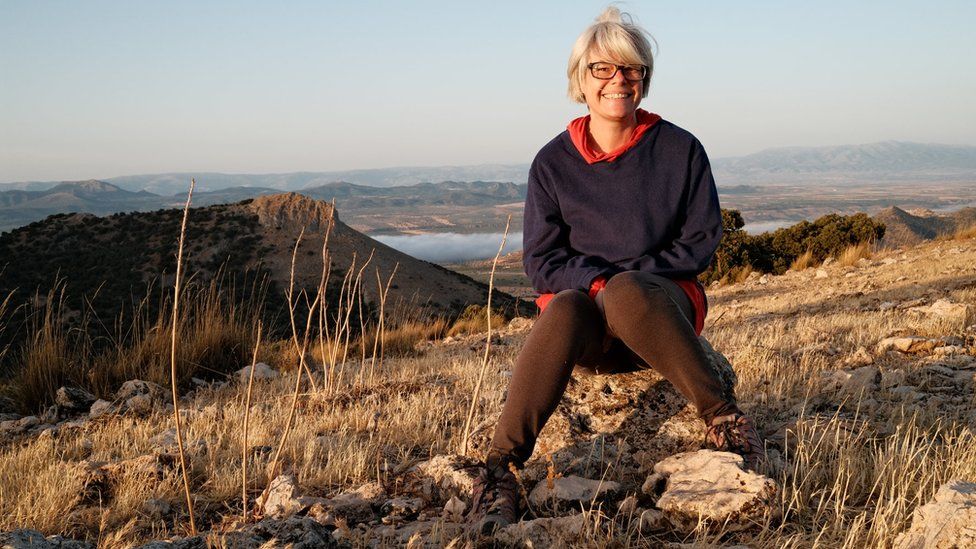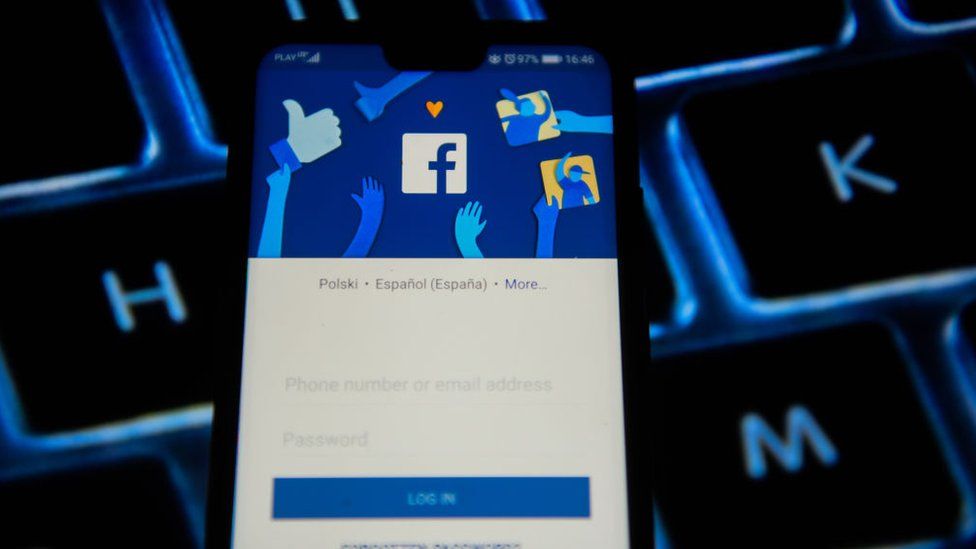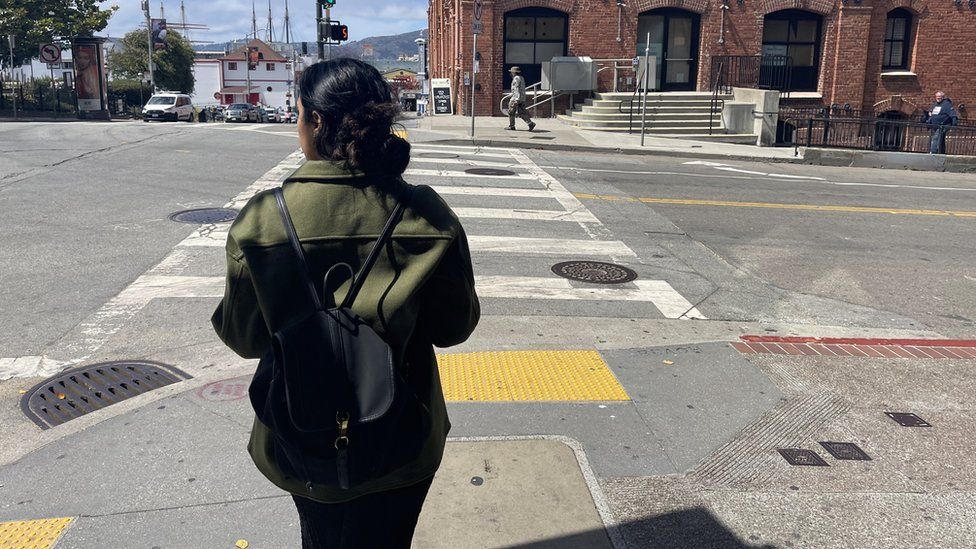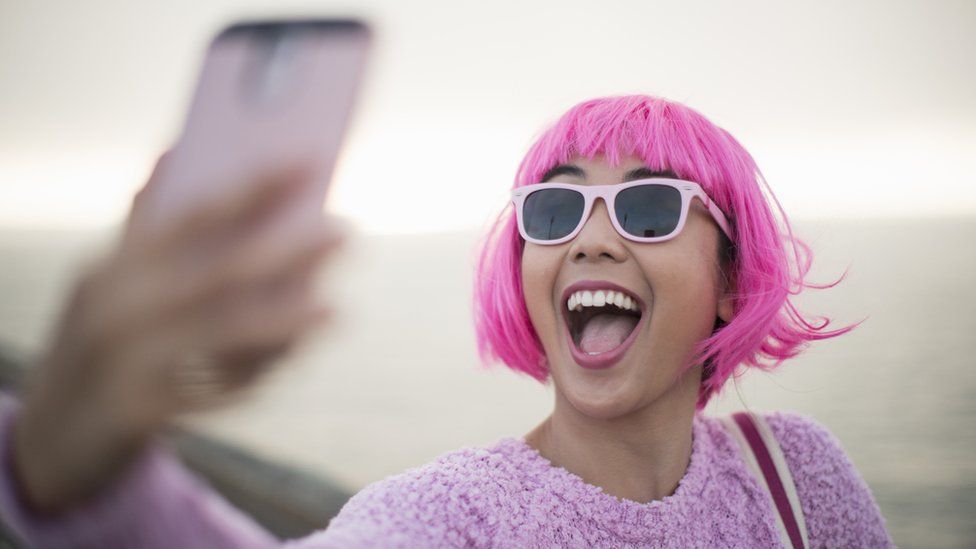‘It’s so liberating’: The people quitting social media

When Gayle Macdonald reached a summit in Spain’s Sierra Nevada mountain range earlier this year, she didn’t just stop and take in the moment.
Instead, the 45-year-old did what a great many people would do – she looked for the best spot to take a selfie for her social media accounts. Gayle even admits that she moved dangerously close to the edge while doing so.
It was after that moment, for which she was berated by her husband, that she decided to quit social media.
“I was like, ‘this has got to stop,'” recalls Gayle, a British expat who lives near the Spanish city of Grenada. “Taking a photo was previously the first thing I thought about when I got out of the car.
“Thinking all the time about creating content, and worrying about what to say, was taking up too much headspace and getting me down.”

A week later she posted on Facebook and Instagram that she would be leaving the platforms. “It was amazing how it was my most-liked post on Instagram. Everyone was commenting ‘I wish I could do that’ and ‘you’re so brave’.”
Gayle, who is a life coach specialising in helping people give up drinking, worked out that she spent about 11 hours a week, on average, on social media.
She says the thought of ditching the apps was much scarier than actually leaving.
“Once the initial withdrawal was over, I didn’t have cravings,” she says. “It was quite liberating. I am now more than six months into my social media sobriety, and I have regained some of that sense of freedom and peace that I experienced when I quit alcohol.”

For many of us, a hefty chunk of our time is spent on social media. One global study in July estimated that the average person spends two hours and 29 minutes per day on such apps and websites. That’s five minutes more than a year earlier.
While some people might think that this is a bad habit that they should cut down on, for others it’s an actual addiction that they need help to overcome.
UK Addiction Treatment (UKAT), an organisation that runs centres to treat social media addiction, says it has seen a 5% increase in the number of people seeking its help for the problem over the past three years.
“Society has undoubtedly developed a strong dependency to social media, and the internet in general since the pandemic,” says Nuno Albuquerque, a counsellor at UKAT.
Increased awareness of these concerns has led to more people like Gayle quitting social media, or at least spending less time on it. And the providers are noticing.
Earlier this year, Facebook’s owner Meta reported that its number of daily active users had declined for the first time in its history. Meanwhile, a leaked internal Twitter report last month said that its previously most active users were now tweeting less. Twitter did not deny the accuracy of the leak.
Even Twitter’s new owner, billionaire businessman Elon Musk, speculated earlier this year: “Is Twitter dying?” And in recent days his takeover has resulted in some Hollywood celebrities saying they will quit Twitter, unhappy with Musk’s views on free speech and plans for the service.
But back in the real world, what are the other reasons why people are leaving social media?
Businesswoman Urvashi Agarwal previously quit Instagram in 2014, but that only lasted for about a year. In August this year she deleted her personal account for a second time, and she’s adamant that this time there will be no going back.

“I’m definitely done,” says the founder of UK teabag brand JP’s Originals, who lives in London.
“One hundred per cent. Not only is it just wasting so much time, but it feels like there’s just less and less privacy in the world. Everything you do is constantly out there.”
Urvashi also no longer uses Twitter or Facebook, and she finds it liberating. “I love it. I now read 15 pages of a book every night instead.”


New Tech Economy is a series exploring how technological innovation is set to shape the new emerging economic landscape.

Hilda Burke, psychotherapist and author of The Phone Addiction Workbook, says there’s now more widespread awareness about how much time people are “frittering” away on social media platforms.
“This is now easily quantifiable, as most phones show you the breakdown of how you’re spending your time online,” she says.
“Seeing how it all adds up can serve as a powerful wake-up call. Many of my clients have expressed a correlation between heavy social media use and poor sleep and increased anxiety.”
She advises that people quitting social media should let all their friends know, so they don’t continue to try to contact you via the sites. “Offer other ways of getting in touch… perhaps an old-fashioned phone call could serve the relationship better in the absence of direct messages.”
Kashmir, who declined to give her surname, is a 27-year-old public relations (PR) executive from Rochester in Kent. She quit Instagram 10 months ago, having previously also walked away from Snapchat.

“The main driver was my mental health,” she says. “There’s a lot of pressure to live up to what other people are doing, which isn’t really representative, or the reality of that person.
“I would find myself scrolling at night, and then having a bad night’s sleep, and then waking up not feeling refreshed. Now I’m not making comparisons in my day-to-day life, and I don’t really know what celebrities are doing.
“It allows me to be more present and firm, and committed to the decisions I make rather than being influenced.”
Kashmir adds that not being on Instagram and Snapchat does not affect her PR work, and that she still uses Linkedin if she is ever looking for a new job.

UKAT’s Nuno Albuquerque says social media can be addictive for many reasons, the main one being that it is a form of escapism, especially for the younger generation.
“It’s simply a way of connecting without connection, and it’s a 24/7 comfort blanket of company for many. But addiction feeds off isolation, and if someone spends more time living online than in the moment, then they will naturally become isolated, and addiction can creep in.”
He welcomes the fact that more people are quitting social media. “It’s likely that we’re eventually starting to realise the damage it can cause to our relationships, mental health and our experience of real-world moments.”
Back in Spain, Gayle Macdonald says she’s happier without social media. “It’s so liberating to sit and have a cup of tea without worrying about the image, the caption and whether or not it should be a story, or a reel, or a post. There really is more to life.”

